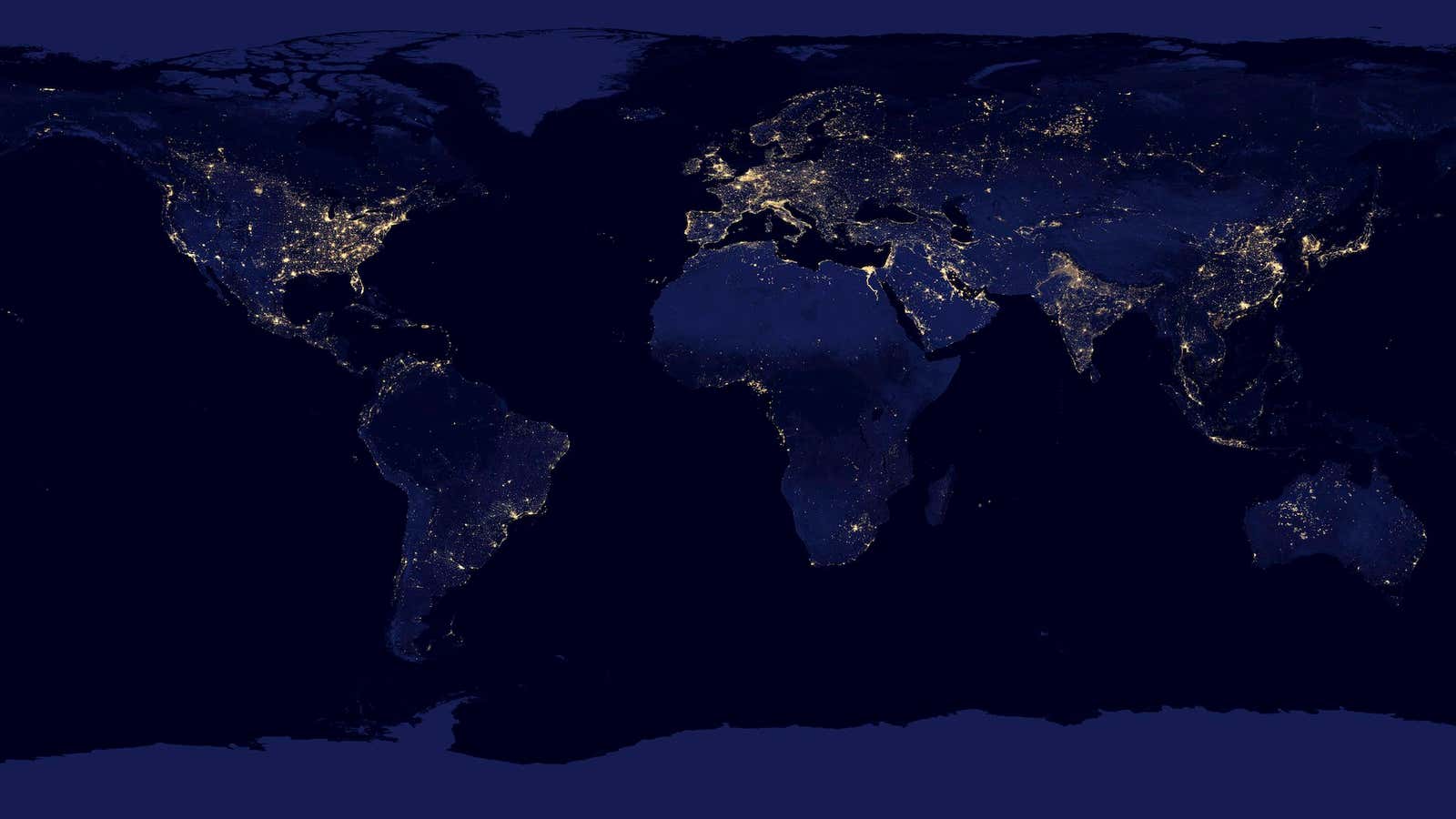Political favoritism in poor countries is visible from outer space. That’s what nighttime shots taken from the International Space Station and other satellites show, according to a new study. In regions where electricity is scarce, towns that were the the birthplace of the country’s political leader will shine the brightest at night.
The study (paywall) cross-referenced leaders’ birthplaces with measurements of what places generate more light at night, indicating wealth and a stronger investment in street lights and other urban development. Around the world, places that birthed political leaders generally saw a 4% increase in nighttime light intensity and a 1% increase in regional GDP after the leader’s rise to power, according to the researcher Paul Raschky, an economist at Monash University. Meanwhile, politically overlooked, poverty-stricken places wallow in the darkness. The researchers used information on political leaders’ hometowns in 126 countries, as well as satellite data on nighttime lights from 38,427 regions between 1992 and 2009.
Political patronage was most starkly visible in poorer countries, because changes in light intensity were nearly invisible in wealthier countries, where reliable electricity is ubiquitous. The effect was strong in African and Asian countries with relatively weak political institutions and autocratic governments. In these regions, a leader’s hometown saw a 30% increase in nighttime light intensity (and a 9% hike in GDP).
Years of satellite images of Zaire (now the Democratic Republic of Congo) under former dictator Mobutu Sese Seko provide a particularly extreme example, showing that the brightness of his hometown, Gbadolite, tracks with his rise to power. At his most powerful, Mobutu spent excessively on Gbadolite, building a lavish palace and a large airport and providing the best electricity, water, and medical services. In that period, Gbadolite’s nighttime lighting stood out from space, proclaiming its newfound prosperity.
But regions that shine bright don’t always hold onto the progress bestowed by their hometown heroes; the lights are often cut after the leader’s departure. After Mobutu’s exile and death, for example, Gbadolite faded back to darkness.
